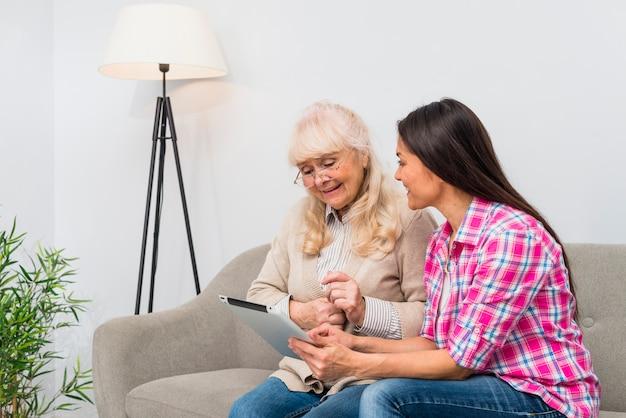In the nine-year follow-up study of Alameda County community-based residents aged between 30-69, it was found that people lacking social and community connections are more likely to die in the follow-up year than those with extensive social interactions. This study outcome highlights the high imperativeness of social involvement and companionship in the well-being and holistic health of people.
We, humans, are inherently social beings, requiring regular communication, engagement, and support from people around us to spend our lives in a healthy and sound manner. From birth to the day we depart from this realm of diverse cultures and societies, we constantly seek and crave connections, soaking up the energy from these social engagements that we need to live a balanced life.
But the question is, why is social engagement significant to us? What role does it play in shaping our lives for the better? Let’s explore together:
The Significance of Social Engagement: Shaping Lives for the Better
Emotional Factor
Interacting with surrounding human beings, whether with family, friends, or relatives, offers great stability to our emotions. When we interact with such people in our routine, it promotes positivity in our emotions, eliminating isolation and loneliness from our lives. This emotional positivity ultimately leads to the overall well-being of our mental health, inducing happiness and satisfaction and also reducing stress effectively.
Mental Stimulation and Cognitive Vitality
Interacting socially with humans and simply being in a social gathering challenge our cognition and encourage mental stimulation. This is because when we interact socially, we think, pay attention, share ideas, exchange information, and learn more; all this leads to brain exercise and healthy cognition abilities. It also positively impacts our memory and analytical and critical skills.
A Sense of Purpose and Meaning
It is a vital socially-driven benefit. When you are social and have a profound companionship in your life, you are tied to some responsibilities and goals, which helps us make your life purposeful and strive for goals of accomplishment. This factor enhances your self-value and negates negativity and depression that comes from low self-worth and social isolation.
Besides these elements, many other facets, which may include physical well-being, resilience, mental toughness, and longevity, come forth when you are socially engaged, and have companionships and communal associations.
Considering the indispensable need for social associations for normal living, it is quite evident that if they get eliminated from our routine, the damage would be highly impactful, influencing overall life quality. This is what happens when you grow to old age. When we get to the age of wrinkly skin and grey hairs, we start losing friends and gatherings, making isolation a permanent part of our lives. This may be due to several reasons, including retirement, losing a life partner, having children all grown up, or simply due to a weakened state of body and mind.
In such a scenario, the elderly are in utmost need of a social connection or companionship, one which can eliminate the becoming muteness from their lives and also care for them, boosting their life quality. You may enquire what does this companionship offer to elderly people? Why is companionship important for seniors? For seniors, companionship is necessary because it not only shares the loneliness of their lives but also helps them cope well with all the stress and other complications that result from social seclusion. It is vital to encourage health and satisfaction in elders, offering them a means to spend their remaining days with happiness, peace, and comfort.
To have a more in-depth understanding of ‘why is companionship important for seniors’, let’s have a look into the benefits it brings with it.
Read More: How Long Do You Need a CareGiver After Hip Surgery?
Why Is Companionship Important For Seniors? – The Benefits
Emotional Well-Being
Elders feel depression, anxiety, and great stress when they experience a sudden shift in their lives from condensed social schedules to a totally inept state and mundane routine. This gives way to a negative influence on their mental health and overall emotional health. However, with quality companionship, they get someone who dedicates time to listen to their problems, offer empathy and share their loneliness. A companionship with a listening ear and proper emotional care can help reduce all these negative outcomes of social seclusion to a great extent.
Social Interactions
Social interaction goes beyond communication. It is broader in scope and links to all the unique and individual characteristics of an elder’s personality. However, due to reduced mobility and loss of gathering, it is difficult for seniors to keep up with healthy social interactions, resulting in adverse mental and health impacts. In this situation, companions can be the means for healthy social interactions as they can offer profound communication, participation in hobbies, company on walks or outings, or simply meal sharing, helping elders to get the best means to remove solitude from their lives.
Personalized Care and Assistance
Given the weakened physical state of seniors, they require assistance to carry out routine activities. However, with no one by their side, they are forced to do them themselves, resulting in injuries and other complications. When there is quality companionship for seniors, they get comprehensive assistance for all essential tasks, such as light housekeeping, meal preparation, medication reminders, and transportation to appointments or social events, accompanying them effectively and beneficially.
Cognitive Stimulation
Engaging in stimulating activities is crucial for maintaining cognitive function and preventing cognitive decline in elderly individuals. Companions can provide mentally stimulating activities like puzzles, games, reading, or engaging in hobbies together. This can help seniors keep their minds active, improve memory, and enhance overall cognitive well-being.
With age, cognition declines. However, it can be maintained well for longer times if a person remains engaged in activities that stimulate their brain and test their cognition. In socially isolated elders, this decline takes pace as they have nothing to interact with, rusting their mental and comprehension abilities. With engaging and interactive company offered by companionship caregivers, elders get to be involved in activities like puzzles, games, reading, and many others where their cognitive abilities are tested and thrive. This also helps to improve the memory and problem-solving skills of elders.
Safety and Peace of Mind
For elderly people living alone, safety can be a concern. Companions can provide an additional layer of security by being present in the home, offering assistance in case of emergencies, and monitoring the well-being of the senior. This not only helps in providing safety and mental peace to elders but also in addressing any emergencies timely.
Read More: How to Find a Good Caregiver for Elderly Parents
THE CRUX
A companionship that thrives on the values of customer well-being, empathy, and quality care can really have a great influence on the life of socially secluded elders. With empathetic companionship, seniors get not only proper physical care but also the mental strength they require to spend their remaining lives in peace and contentment. This promotes life longevity along with many other positive outcomes, transforming socially-isolated life years into thriving and lively, and vibrant moments.


